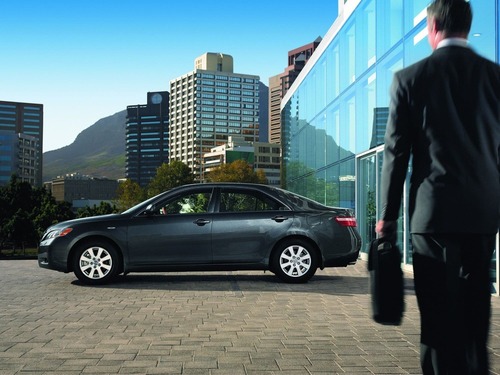
Tips for reducing fuel consumption in rental cars
In a world where fuel costs continue to rise and the environmental impact becomes increasingly evident, saving fuel has become a priority for many drivers. This is even more important when it comes to rental cars, where reducing fuel consumption not only protects the planet but also your wallet.
Useful tips for optimizing fuel consumption in rental cars
The CrazyRent team has prepared some useful tips to help you reduce fuel consumption in rental cars.
Choose and Rent the Right Car
The first step to saving fuel is to choose a fuel-efficient car. Rent cars with small engines or hybrids. Generally, compact and subcompact cars consume less fuel than SUVs or luxury cars. So, opt to rent an economy class car instead of renting a luxury car.
Check the tire pressure in the rental car
Fuel Economy, an agency dealing with energy efficiency and renewable energy, states that maintaining the correct tire pressure can improve fuel consumption by an average of 0.6% and up to 3% in some cases. Under-inflated tires can decrease fuel efficiency by about 0.2% for every 1 PSI drop in the average tire pressure of all tires (fueleconomy.gov).
Make sure the tires are properly inflated according to the manufacturer's specifications. Proper tire pressure not only improves fuel consumption but also driving safety, ensuring a comfortable ride.
Drive prudently
Driving style has a major impact on fuel consumption. Avoid sudden accelerations and braking, and maintain a constant speed. Studies show that aggressive driving can increase fuel consumption by up to 40%.
Use air conditioning moderately
Air conditioning increases fuel consumption, especially at low speeds. Try to use the air conditioning only when necessary and, when possible, open the windows to cool the car. At high speeds, air conditioning is more efficient than opening windows, which creates additional aerodynamic drag.
Remove Unnecessary Weight
A heavier car will consume more fuel. Remove any unnecessary items from the car and avoid traveling with a full trunk unless necessary. Studies by environmental protection agencies, such as the US Environmental Protection Agency (EPA) in collaboration with automotive organizations, show that every 100 pounds (45 kg) increases fuel consumption by about 2%.
Plan Your Trips
Efficient trip planning can significantly reduce fuel consumption. Avoid peak hours and choose routes with less traffic. Use navigation apps that can help you find the shortest and fastest route, thus avoiding time spent in traffic.
Turn off the engine when stationary
The US Environmental Protection Agency (EPA) recommends turning off the engine if the vehicle is stationary for more than 30 seconds. They state that restarting the engine consumes less fuel than letting it idle for short periods. Studies show that idling can consume between 0.1 and 0.5 liters of fuel per hour, depending on the type of engine and operating conditions (Fuel Economy) (The Motor Guy).
Properly maintain the rental car
A well-maintained car will consume less fuel. Ensure that air filters are clean, oil is changed on time, and the engine operates at optimal parameters. Any minor malfunction can lead to increased fuel consumption.
Choose the right fuel when renting a car
Use the type of fuel recommended by the car manufacturer. Lower-quality fuel can lead to poor performance and increased consumption. Additionally, fuel with additives can contribute to more efficient combustion.
Saving fuel is not just about saving money, but also about being responsible towards the environment. By adopting these simple tips, you can help reduce carbon emissions and make rental car trips more financially efficient for you and more environmentally friendly.
So, next time you rent a car, keep these tips in mind and enjoy a more economical and eco-friendly driving experience. Choose CrazyRent.md for smart and responsible car rental!

.jpg)
